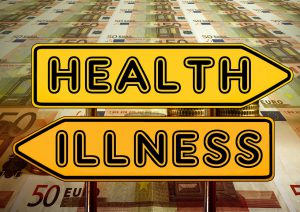So, you’ve successfully got your business up and running, you got all of your finances in check, and now you’ve searched for a quote with EZ.Insure’s quote engine to find a new policy (group health or commercial). So–now what?
Well, you definitely can’t sit back and relax just yet. Now, it’s time for you to put on your Negotiator hat so you can get the best rates for your company. We’ve got a handy list here for exactly what you need to do (and why).
Be Hungry

And we don’t mean for a burger.
Be hungry for answers and for results. When you take a call or travel for an office visit, bring a notepad or use a device to record important questions beforehand. Often times, people forget (or are reluctant to speak about) potential savings unless asked first. These questions involve things like:
- Are there any discounts?
- What are all the rates I qualify for?
- Why should I purchase from you?
Come prepared to every meeting with a desire to better your business. If you come with a fighting attitude, the rest will fall into place. People respect you more when they see the conviction you have for your plans. It makes you look more attentive, reliable, and attractive when you arrive ready to resolve things.
Be Informed
Don’t just take everything at face value. Of course, insurance agents are the industry experts, after all, they do have to pass an intense exam before they get their license. But, don’t forget that they’re human too. Sometimes, it’s impossible to know absolutely everything.
People can overlook information as well. Do some digging on your own (nothing too deep, just enough to be aware of things like fees). This way, you’ll be aware of insurance rates and what the market says about them. You’ll also find it easier to talk about your terms if you know the lingo. Certain words like “premium” can mean different things in normal conversation.

Be Open
If you’re shopping around for a policy, do just that–shop around. Don’t just take the first offer handed to you. If you look around at a bunch of different plans (an easy tool with EZ.Insure) then you’ll have a better idea of what you’re buying comparatively. Your rates aren’t concrete, so you have some wiggle room with negotiating a better price if you can cite another source.
Remember, even if you’ve found the perfect policy and you love your agent, you can check back regularly, about every six months. Check on your insurance package to see when it’s updated and make a habit of asking the above questions. Circumstances change in the insurance world regularly, and you don’t want to miss out on a surprise cost-saving option that just came up!
EZ.Insure was born to help you get to this point. Your agent will answer any questions you have, compare different plans for you, and even sign you up when you’re ready, free of charge and without having to worry about being hounded by endless calls. To get started simply enter your zip code in the bar above, or you can speak to an agent by emailing replies@ez.insure, or calling 888-350-1890. EZ.Insure makes the entire process easy, and quick.

